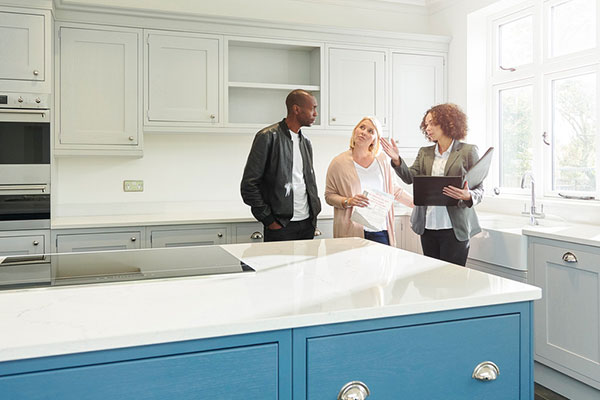5 Questions to Ask Before Buying a Second Home
Buying a second home can be an emotional or practical decision—and often, it’s a bit of both.
You may take an annual vacation with family or friends and decide it’s time to have a permanent place to stay. Perhaps you’re looking for a new income stream from a rental property. Or, you have a parent who is financially strapped and needs to sell their home, but wants to live in it until they pass.
Another home may even be part of your long-term plan as it can provide rental income in the short-run and a place to retire to in the future. But it’s never a good idea to rush into such a large decision. Here are a few of the questions you’ll want answers to before moving forward.
Why Are You Buying a Second Home?
The first question—why—is the most basic. It’s also one of the most important as the answer can drive many of your decisions.
Sometimes it’s clear, such as a parent asking for assistance. But you could be feeling pressure when friends are buying second homes or because you think you should be exploring new investment opportunities.
Try digging a level deeper and considering all the options, because big decisions often aren’t so black and white.
- Buying a different home for a parent could make more sense than taking over their current house.
- Forming a relationship with a local landlord and renting the same vacation house (and paying in advance to secure a discount) could be easier and cheaper than managing your own vacation property from afar.
- Investing in real estate through REITs or crowdfunding platforms could be a way to add real estate to your portfolio.
Not to say buying a second home is a bad idea, but be sure you know your why.
What Type of Home Do You Want?
Focusing on investment and vacation properties, consider the location and type of home as you weigh your decision.
A single-family house can give you the freedom to make modifications and upgrades as you please, but you’ll also be responsible for all the property upkeep. With a condo or co-op, you won’t have to worry about the shared spaces, but you’ll have to pay dues and be restricted if you want to customize the home.
As for location, you’ll know what makes sense when it comes to vacation spots for yourself. But consider whether you might want to occasionally rent it out through home-sharing apps and services. Even if you need to hire a property manager, a vacation home that breaks even could be a great purchase.
When you’re looking for a pure investment property, factors like the school zone and walkability score may be more important than the distance to the beach. Depending on where you live, you may want to start with a nearby investment home that you can easily keep an eye on throughout the year.
Will You Have to Hire a Property Manager?
Managing a second home can be a lot more work than people first think. While vacation homes can be left unoccupied for much of the year, you still need to pay for upkeep. Depending on the location and when you use the home, also consider if you’ll need to prepare the house for changing seasons and natural disasters.
With a rental, you could personally take on much of the work if the home is nearby. Alternatively, you can outsource the work by hiring either an individual property manager or a property management firm.
For a fee, you’ll be able to free yourself from having to deal with contractors, upkeep, and finding tenants. If you can still come out ahead after the fees, you’ll have a nearly passive form of income.
How Much Will This Actually Cost?
You might already be daydreaming about the numbers, but determine the realistic expenses (and potential income) to determine if another home is feasible. A second mortgage, homeowners insurance policy, repairs, and maintenance can add up quickly—and some of these may be more expensive on a second home.
For example, you may need a high down payment (such as 20% to 30%) and good enough credit to qualify for a conventional mortgage as government-backed mortgages may only be an option for primary residences. And if you’re still paying off a first mortgage, that will affect your debt-to-income (DTI) ratio, which can impact your ability to qualify for a mortgage and the rate you receive.
You’ll also need to figure out how the home will impact your taxes. The rules can vary depending on whether you’re renting out the home, how long it’s rented throughout the year, and how many days you spend at the house annually. The overall value of your primary and second home can also impact if and how much mortgage interest you can deduct.
How Do You Start?
You’ve thought through the pros and cons and decide to move forward with buying a second home. Now, you’ve got to find the right home, at the right price, and finance the purchase.
The process will be similar to buying your first home and you could start by researching potential properties online and then connecting with local real estate agents. Try to get a sense of the market, how long homes usually stay listed for, and ask about the advantages and disadvantages of different areas.
You may also want to start on the mortgage preapproval or prequalification process. It can be more complicated for vacation and investment properties, and you want to be ready to go when you find the right home.
As always, keep an eye on your budget and make sure your new home fits in without putting too much strain on the rest of your finances.
Quicken has made the material on this blog available for informational purposes only. Use of this website constitutes agreement to our Terms of Use and Privacy Policy. Quicken does not offer advisory or brokerage services, does not recommend the purchase or sale of any particular securities or other investments, and does not offer tax advice. For any such advice, please consult a professional.



